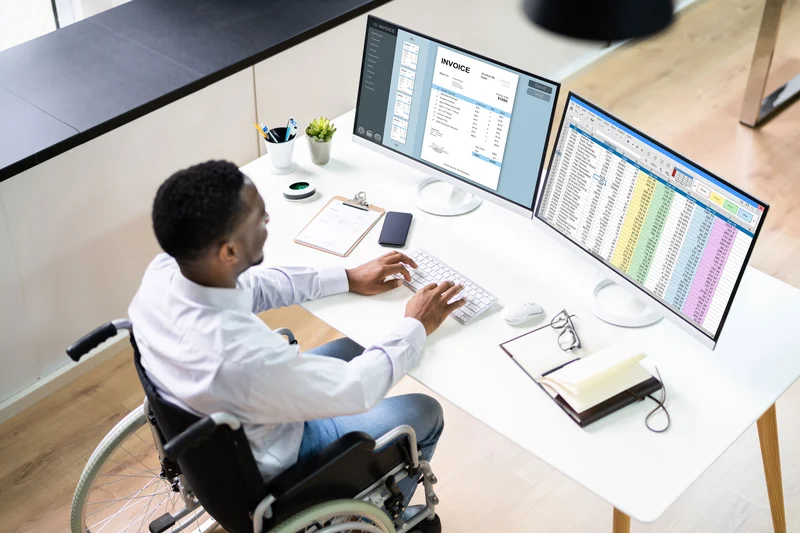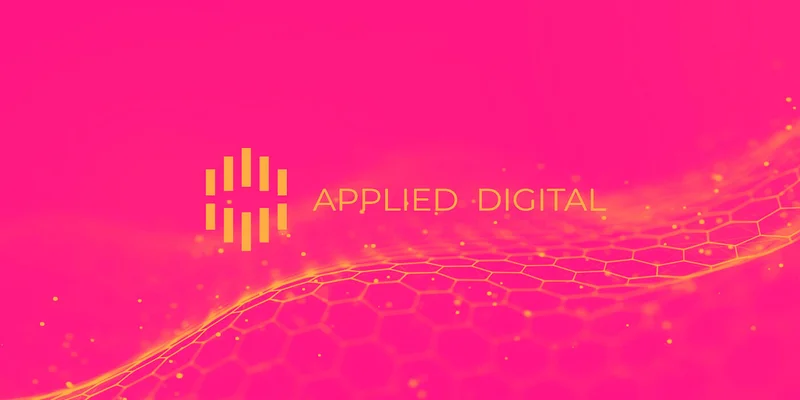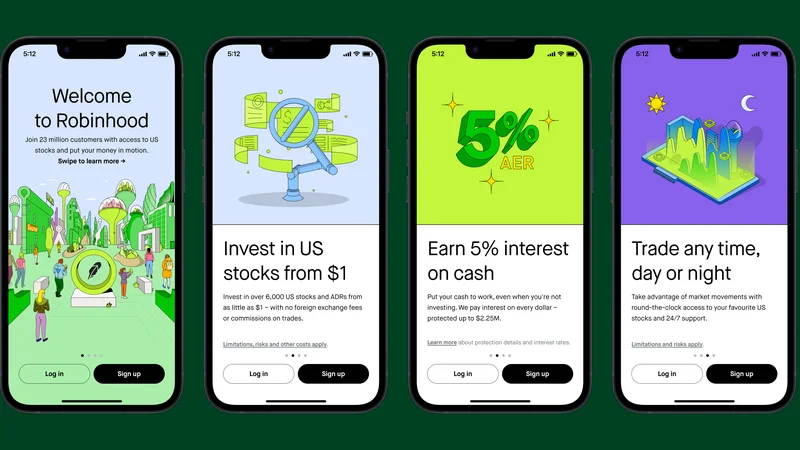The Nebius AI Breakthrough: Why This Changes Everything
It’s not often that a typo—or at least, the potential for one—tells you the most important story in technology. On October 2nd, a strange and wonderful confusion rippled through the market. The ticker symbol NBIS, representing the Nasdaq Biotechnology Index, surged to a one-year high. At the same time, another NBIS, the stock for a Dutch cloud provider called Nebius Group, was also climbing. The reason? A colossal $17.4 billion deal with Microsoft.
Most of the headlines focused on the obvious: Microsoft, hungry for AI dominance, was securing a massive arsenal of over 100,000 of the world’s most advanced NVIDIA chips. This is the hardware that powers the large language models and AI assistants changing our world. It’s a monster deal, a strategic power play in the great AI arms race. But I believe the market’s momentary confusion wasn't a mistake. It was a Freudian slip, a glimpse into the profound truth of where this is all headed. This story isn't just about smarter chatbots. It’s about rewriting the code of life itself.
The Digital Laboratory
Let's get the numbers out of the way, because they’re just the cover of the book, not the story inside. Nebius is building a new data center in New Jersey, a temple of computation, and filling it with the holy grails of modern AI: H100s, Blackwells, and the new GB300 GPU clusters. Microsoft gets dedicated access, paying a sum that could swell to nearly $20 billion. In return, they get the raw horsepower to fuel their AI ambitions.
But what is that horsepower for? What do you do with that much computational muscle?
Imagine a laboratory, not with beakers and Bunsen burners, but with pure data. This is what that New Jersey data center really is. It’s a place where you can simulate a protein folding in a thousand different ways in the time it takes to brew a cup of coffee. It’s a place where you can model how a new drug will interact with human cells before a single molecule is ever synthesized in the real world. This deal gives Microsoft access to a massive cluster of GPUs—in simpler terms, they're hyper-specialized processors that are incredibly good at doing the kind of parallel math needed for AI and complex simulations. When I read the details of this deal, I didn't just see a stock ticker. I saw the future of medicine, and honestly, it gave me chills.
The AI that can write a passable college essay is built on the same fundamental architecture as the AI that can predict the structure of a novel protein to fight a disease we thought was incurable. This is the kind of raw, unadulterated computational horsepower that moves us from incremental progress to genuine paradigm shifts—it’s the digital equivalent of the Apollo program’s Saturn V rocket, built not for the moon, but for the universe inside our own cells. The deal isn't just about Microsoft competing with Google; it's about humanity competing with disease, with aging, with our own biological limitations.

So, what happens when the cost of discovering a life-saving drug plummets by an order of magnitude? What new frontiers open up when we can model entire biological systems in silico before ever touching a petri dish?
The New Gold Rush Is for Knowledge
Naturally, Wall Street is trying to figure out how to value this. Nebius just raised a combined $4.3 billion from stock and note offerings. The stock is up. Analysts are busy crunching numbers, with some cautiously noting that "other AI stocks may offer greater upside potential and carry less risk." And with all due respect, I think they’re looking at the wrong map.
This isn't just another tech stock. This is the digital equivalent of the transcontinental railroad. People in the 1860s who only saw the value of a single locomotive or a mile of track missed the point entirely. The railroad wasn't about trains; it was about connecting a continent, creating new industries, and building a new kind of economy. This AI infrastructure, this "neocloud" as they call it, is the railroad for the 21st century. It's the foundational layer upon which entire new industries in biotech, materials science, and personalized medicine will be built.
Microsoft isn't just buying computing power; it's buying a stake in every single breakthrough that power will enable. And we, as a society, are the ultimate beneficiaries. The biotech companies tracked by that other NBIS index are the ones who will ride these new rails. Their time-to-market for new therapies could be slashed, their R&D costs could fall dramatically.
Of course, with this power comes an immense responsibility to ensure these tools are used to lift all of humanity, not just a select few. The ethical guardrails we build around this technology will be just as important as the silicon it runs on. But for the first time, we have a tool that is truly a match for the complexity of biology itself. We’re moving from observing nature to understanding it, and from understanding it to partnering with it. Are we just investing in a cloud company, or are we funding the foundational infrastructure for the next hundred years of human health?
The Code of Life is Being Rewritten
Forget the stock charts for a moment. Forget the quarterly earnings reports and the analyst ratings. The real story here is that we are building the tools to understand our own source code. The accidental overlap of two ticker symbols was a beautiful, poetic accident. It connected the engine (Nebius) with the application (biotech). This isn't just a business deal. It’s a hinge point in history, the moment we secured the industrial-scale computational power to turn biology into an information science. The next great medical breakthroughs won't come from a test tube alone; they’ll be born in a server rack in New Jersey.
-

Warren Buffett's OXY Stock Play: The Latest Drama, Buffett's Angle, and Why You Shouldn't Believe the Hype
Solet'sgetthisstraight.Occide...
-

The Great Up-Leveling: What's Happening Now and How We Step Up
Haveyoueverfeltlikeyou'redri...
-

The Future of Auto Parts: How to Find Any Part Instantly and What Comes Next
Walkintoany`autoparts`store—a...
-

Applied Digital (APLD) Stock: Analyzing the Surge, Analyst Targets, and Its Real Valuation
AppliedDigital'sParabolicRise:...
-

Analyzing Robinhood: What the New Gold Card Means for its 2025 Stock Price
Robinhood's$123BillionBet:IsT...
- Search
- Recently Published
-
- DeFi Token Performance & Investor Trends Post-October Crash: what they won't tell you about investors and the bleak 2025 ahead
- Render: What it *really* is, the tech-bro hype, and that token's dubious 'value'
- APLD Stock: What's *Actually* Fueling This "Big Move"?
- Avici: The Real Meaning, Those Songs, and the 'Hell' We Ignore
- Uber Ride Demand: Cost Analysis vs. Thanksgiving Deals
- Stock Market Rollercoaster: AI Fears vs. Rate Hike Panic
- Bitcoin: The Price, The Spin, & My Take
- Asia: Its Regions, Countries, & Why Your Mental Map is Wrong
- Retirement Age: A Paradigm Shift for Your Future
- Starknet: What it is, its tokenomics, and current valuation
- Tag list
-
- Blockchain (11)
- Decentralization (5)
- Smart Contracts (4)
- Cryptocurrency (26)
- DeFi (5)
- Bitcoin (31)
- Trump (5)
- Ethereum (8)
- Pudgy Penguins (6)
- NFT (5)
- Solana (5)
- cryptocurrency (6)
- bitcoin (7)
- Plasma (5)
- Zcash (12)
- Aster (10)
- nbis stock (5)
- iren stock (5)
- crypto (7)
- ZKsync (5)
- irs stimulus checks 2025 (6)
- pi (6)
- hims stock (4)
- kimberly clark (5)
- uae (5)
